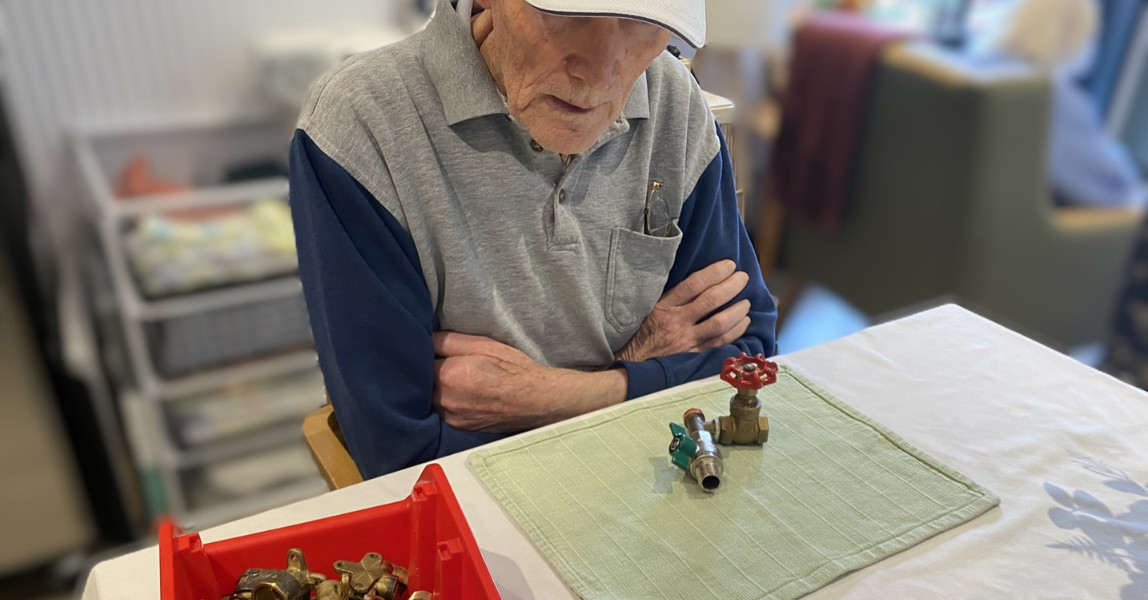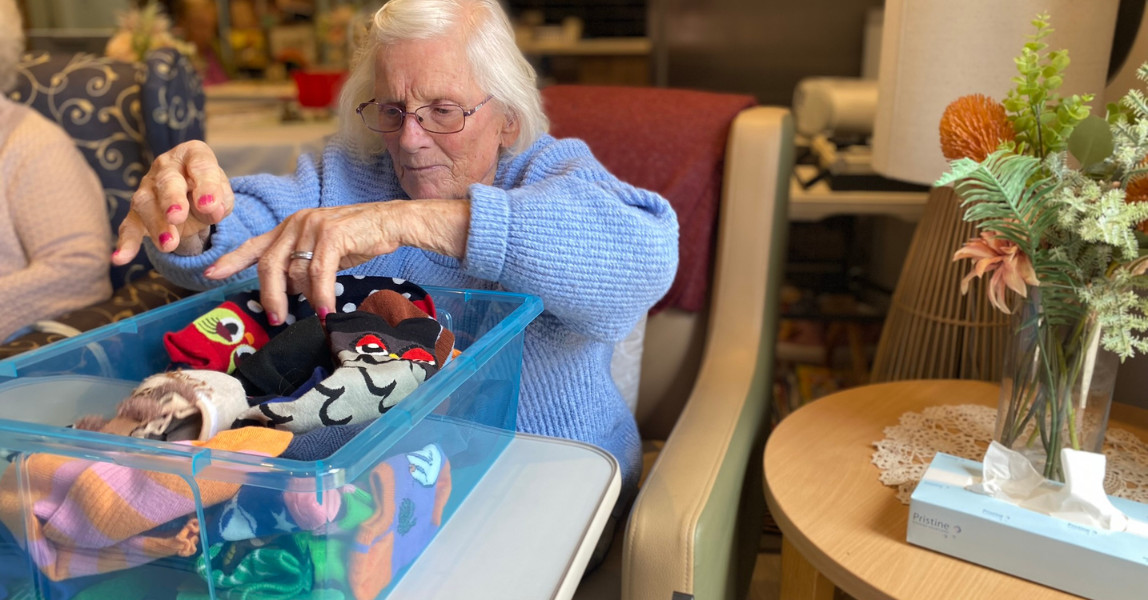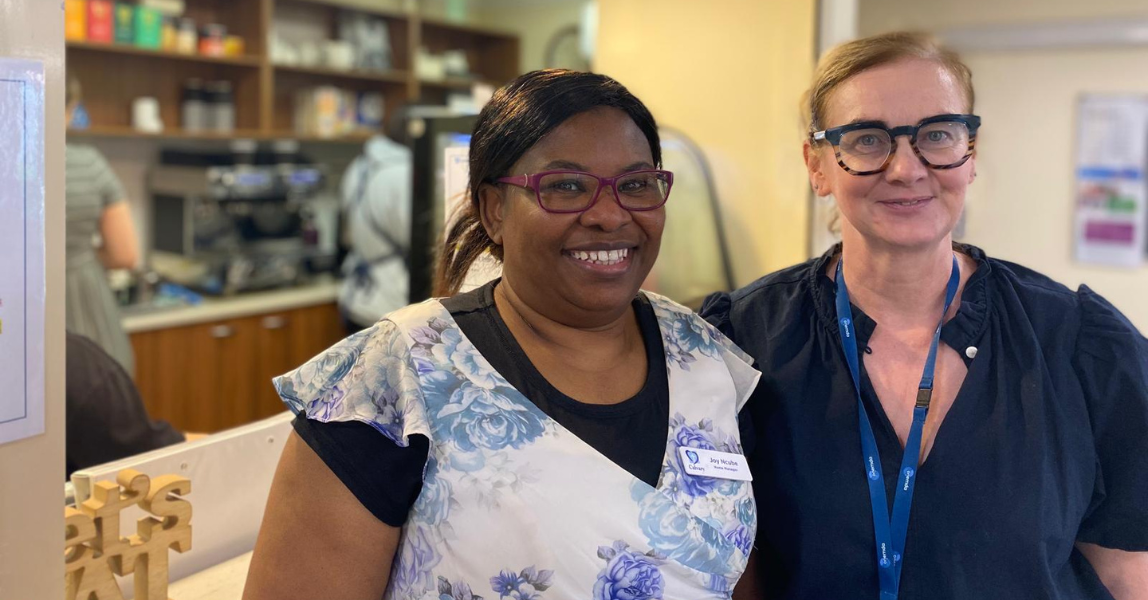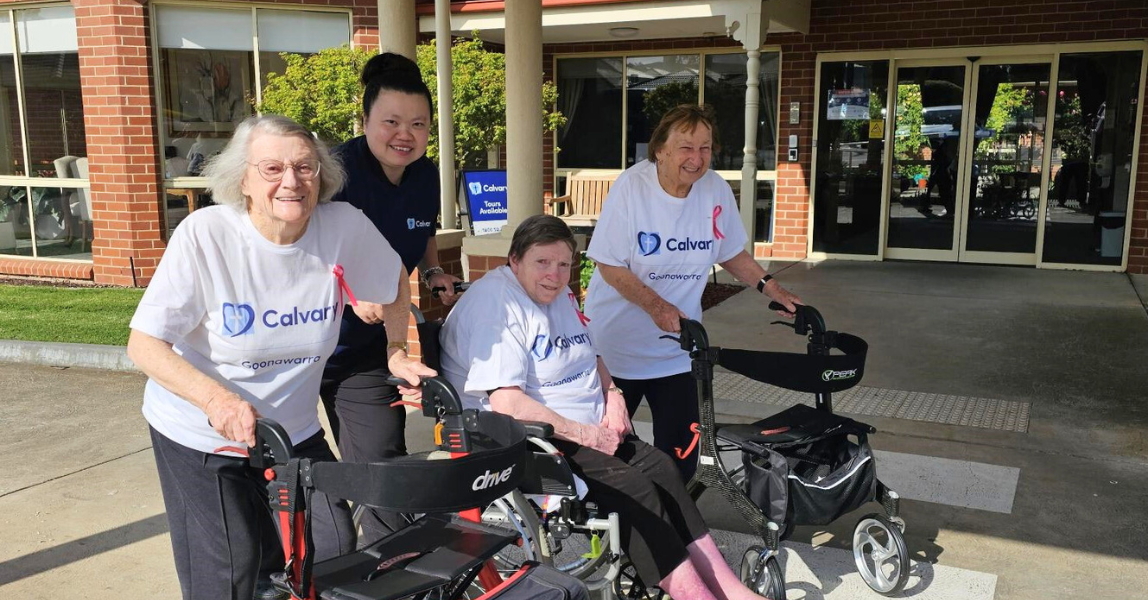Dementia program a star performer at Calvary
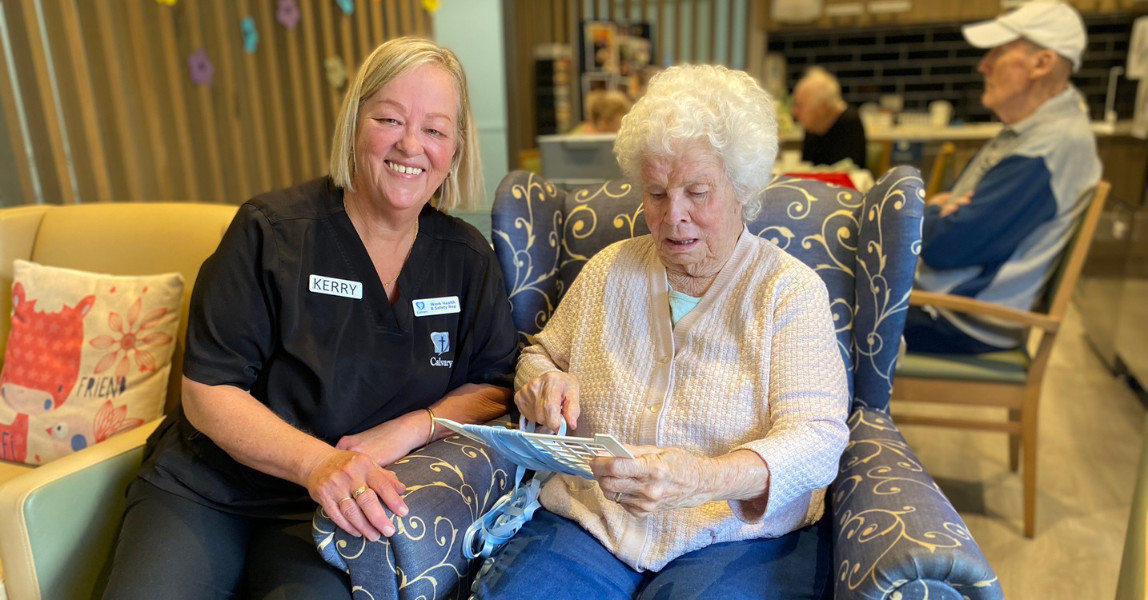
Based on a Montessori approach, the Calvary program provides meaningful, tailored, small-group activities and support for residents living with dementia.
Calvary Aged Care General Manager, Dana Ieraci, said the memory support program had helped participants engage and enjoy activities tailored specifically to their interests and past lives, which in turn had resulted in improved clinical outcomes and more settled behaviours.
“It has also had a positive impact on other residents and staff members,” he said.
The effects of dementia
“Dementia can impact memory, speech, cognition, personality, and mobility. Unfortunately, it can also affect behaviour,” Mr Ieraci said.
“Having meaningful, purposeful activities in place tailored to what the residents enjoy provides them with a better quality of life, and in some cases has also led to significant improvements in clinical aspects.
“We had one lady who came into the program quite frail, unsettled, not eating or drinking, requiring lots of support. After about a month, she started eating and drinking independently, she was smiling, and had stopped being really distressed and anxious. The number of falls she was having reduced markedly and we could reduce the medications she was on. Her whole outlook and demeanour really changed.”
The program, which operates in six Calvary homes located between Rye and Brighton, won Calvary’s 2024 Star award for quality and safety.
Meet Kerry
Kerry Taylor, a long-time care worker at Calvary Capel Sands, runs the memory support program for up to six residents from 10am to 6pm each weekday with support from other staff. She has come to know her residents, their families, careers, and social backgrounds, likes and dislikes, personalities, and needs very well.
“I believe one of the most important things about memory support for people living with dementia is that people feel known, because when you feel known, you feel valued.
“I get all the information I can about a resident from their family, friends, notes, and care plan. I take in everything I can and observe them very closely when they first come into the program.
“So, when we interact or do an activity, they think 'Oh, this person must know me', and that gives them a great sense of comfort.”
The activities are tailored accordingly. She watches a cooking show with the resident who used to work in a pie shop and adds extra cinnamon and spices to dishes they might make.
A feather duster is included in the activity box of a woman who used to be a cleaner, and Kerry intentionally leaves things lying around for her to tidy.
Some of the women don old-fashioned aprons to do the washing up before or after dinner. A former secretary busily stamps and files invoices and other documents into their rightful folders.
A former boilermaker spends some time dismantling and reassembling piping or nuts and bolts, or sanding timber ready for painting.
YouTube walks take residents back to the neighbourhoods where they grew up or once lived, or to far flung places around the world once visited.
On many occasions, Kerry has reached out to her community to source specific items, like saddles for a retired farmer who happily spent hours brushing one and conditioning the other with an aromatic, calming eucalyptus leather cream. Or a carburettor sourced from a local car wrecker that another resident, a former diesel mechanic, could pull apart before declaring it was no good and “should be put to scrap”.
“One of the most successful things I've found for people who are mechanics is socket sets – it's a man jigsaw," said Kerry.
“People need a reason to do the activity and it needs to be focused on them and meaningful for each person, so it is all very individual care. There is no patronising or condescension, and I never give them activities where they might feel they have failed.
“Having purpose, finding meaning, being valued: the way it presents is different and individual, but we all have the same needs."
